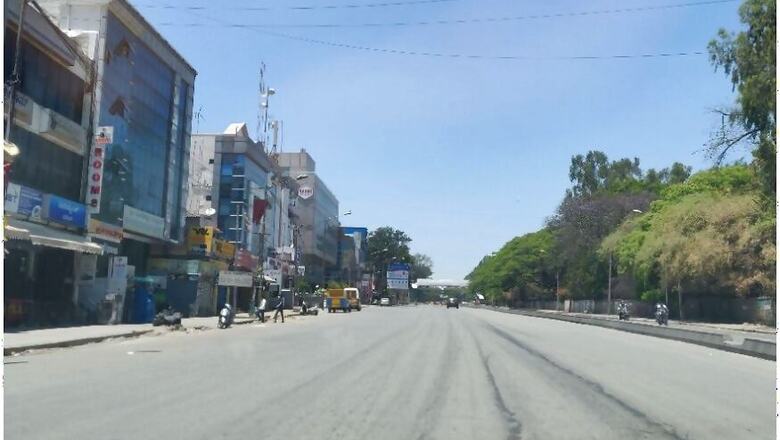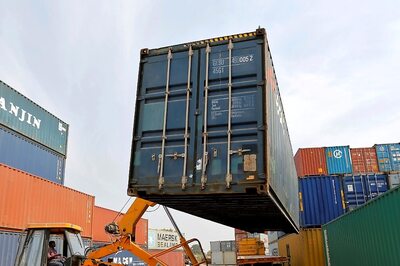
views
The restaurants and roadside eateries, which were shut for over 75 days are set to open on Monday. During the lockdown, of over 10,000 eateries, only a few hundreds were open, offering parcel or takeaway service. The 10-week long closure of business has already dealt a death blow to many of them, and Bengaluru’s most ubiquitous ‘darshinis’ or fast food joints are the worst hit.
Bengaluru offers a variety of culinary options to its people. From iconic Udupi hotels serving local items like Idli, vada, dosa to new entrants like Afghani restaurants can be found all over India’s Tech capital.
According to hotel industry experts, at least 50% of the eateries and restaurants may not reopen immediately, while some may shut permanently. The mass exodus of migrant labourers from Bengaluru has created a huge shortage of workers forcing many hoteliers to shut shops for an indefinite period.
“Most ‘darshinis’, roadside eateries and restaurants employ migrants from North, East and Northeast. There are also a sizable number of workers from different parts of Karnataka. In the last one month, half of them have gone back home. They may not return immediately. Even if they return in the next 3-4 months, food industry will die by then. Cleaning, cooking and serving are done by them and the 10-week lockdown has wiped off next two years profit for the most. Now, we don’t have enough staff to resume operations,” said Vishwanath Adiga of Adiga family, which owns several eateries in the city.
The ‘darshinis’ employ a minimum of five to 10 employees and the bigger restaurants employ up to 100. Except a few legacy brands, rest are left with almost no or only a bare minimum staff.
The lockdown has destroyed the time tested, highly successful business model. Most of these survive on daily business and cash flow. In the last 10 weeks, most of them have exhausted all their savings and cash reserves to pay salaries, bills and rent.
“Many don’t have money to reopen the business. Rentals are exorbitant. If the building owners waive off the rent, many may survive. Otherwise, it is impossible for us to continue operations under the present circumstances. We have to pay electricity, water bills and property taxes”, said another restauranteur.
The restrictions imposed on businesses to fight the coronavirus is also affecting the food industry. Some feel that most operate on thin margins. The volume of business makes their venture feasible. If the volume comes down due to physical distancing rules, the business becomes totally unviable, they say.
“In the last 10 weeks, people’s eating habits have also changed. Economy is down. Even if we operate at full capacity, there is no guarantee that we will have business. The App-based takeaway business does not help the most,” said another restaurant owner.
Many of Bengaluru’s pubs are also facing the same problem. “We don’t have staff. Our operational costs are high. The night curfew starts at 9pm, every day. Our business starts only after 9 o’clock at night. There are restrictions on dancing, partying etc. How will we survive? Future looks bleak,” said Prashanth, who runs a famous pub.
The “Work from Home” system has severely affected the caterers who supply food to IT and other companies. “Our business may die completely. We don’t think people will come back to offices soon,” said a caterer.
Bengaluru’s famous food lanes in VV Puram, Chikpet and Commercial Street area are also worried about resumption of business. The eating joints in these areas do brisk business only in the night and are always crowded. The post-lockdown restrictions might make their business unviable and impossible to comply with.
“Let’s see what happens after June 8. We will get an idea in a month. Hopefully, we will survive, though the indications are ominous,” said an eatery owner.
If the lockdown and restrictions force some iconic eateries to shut permanently, it will be a death blow to an intangible, cultural heritage of Bengaluru.




















Comments
0 comment